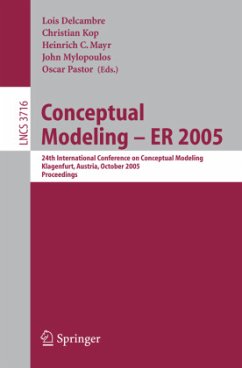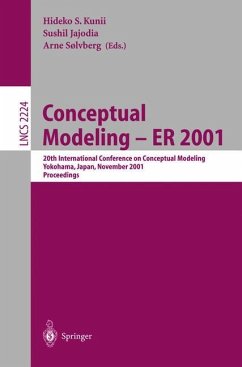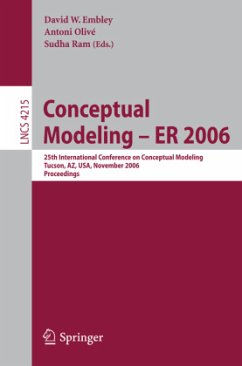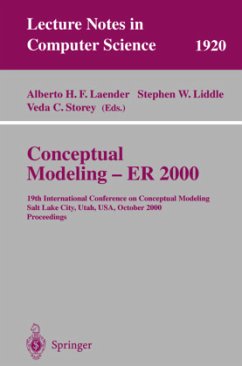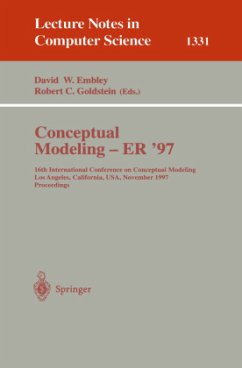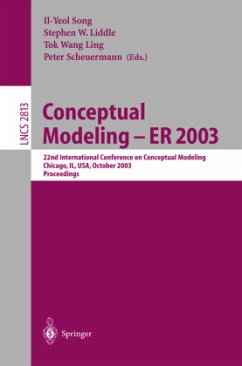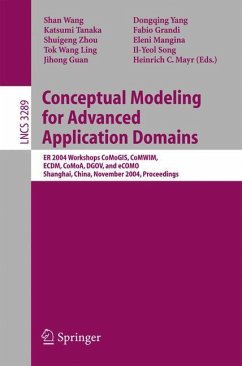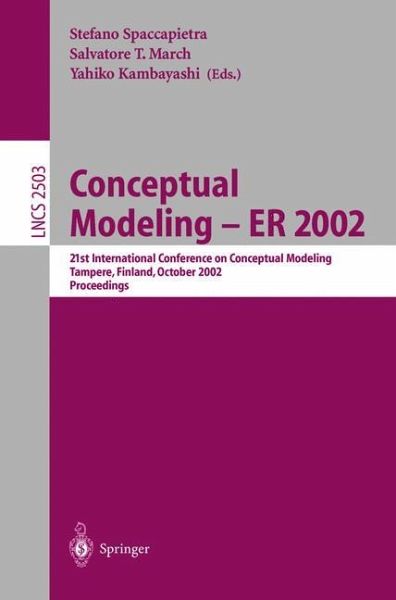
Conceptual Modeling - ER 2002
21st International Conference on Conceptual Modeling Tampere, Finland, October 7-11, 2002 Proceedings
Herausgegeben: Spaccapietra, Stefano; March, Salvatore; Kambayashi, Yahiko

PAYBACK Punkte
20 °P sammeln!
For more than 20 years, the series of Conceptual Modeling - ER conferences has provided a forum for research communities and practitioners to present and - change research results and practical experiences in the ?elds of database design and conceptual modeling. Throughout the years, the scope of these conferences has extended from database design and speci?c topics of that area to more u- versal or re?ned conceptual modeling, organizing originally weak or ill-structured information or knowledge in more cultured ways by applying various kinds of principles, abstract models, and theories, for d...
For more than 20 years, the series of Conceptual Modeling - ER conferences has provided a forum for research communities and practitioners to present and - change research results and practical experiences in the ?elds of database design and conceptual modeling. Throughout the years, the scope of these conferences has extended from database design and speci?c topics of that area to more u- versal or re?ned conceptual modeling, organizing originally weak or ill-structured information or knowledge in more cultured ways by applying various kinds of principles, abstract models, and theories, for di?erent purposes. At the same time, many technically oriented approaches have been developed which aim to facilitate the implementation of rather advanced conceptual models. Conceptual modeling is based on the process of conceptualization, and it is the core of system structuring as well as justi?cation for information systems development. It supports and facilitates the understanding, explanation, pred- tion, and reasoning on information and knowledge, and their manipulation in the systems, in addition to understanding and designing the functions of the systems. The conceptualization process aims at constructing concepts relevant for the knowledge and information system in question. Concepts in the human mind and concept descriptions in computerized information systems are quite di?erent things by nature, but both should be taken into account in conceptual modeling. Usually concept descriptions are properly observed, but concepts in the human mind and their properties are often neglected quite carelessly.





